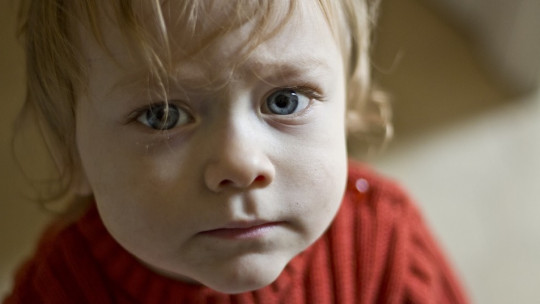In the vast and heterogeneous human experience, social relationships play an essential role for our psychology and well-being, shaping our emotions and directly influencing our quality of life. In this context, the intrinsic connection between the type of attachment that we develop and form throughout our childhood and upbringing and the way in which we relate to other people is presented as a fascinating and fruitful field of study.
From secure grounding that fosters strong relationships to the complexities of anxious or avoidant patterns, it is important to understand that these experiences influence the way we relate throughout life. Discovering the relationship between attachment and social skills not only provides a deeper understanding of ourselves, but also opens the door to strategies to strengthen our human connections and enrich our daily interactions.
Therefore, in this article we will delve into this intriguing topic, seeking to discover in greater depth the way in which social skills are influenced and even determined by the type of attachment we develop in the childhood.
What is attachment?
Before focusing on the influence that social skills receive from the differential attachment that we develop in our lives, it is important to establish a small contextualization of this concept itself.
Attachment is an emotional bond that we establish during our childhood with the person who is in charge of taking care of us and give us the necessary affection in these early stages of life. Therefore, it plays a fundamental role in the formation of personality and the establishment of interpersonal relationships in specific ways and means. Psychologists have identified, over the years and research, different attachment styles, including secure, anxious, avoidant and disorganized.
These attachment models are forged during our childhood through repeated interactions with caregivers and the displays of affection that they develop throughout their upbringing. A secure attachment, characterized by trust in the caregiver’s availability, lays the foundation for healthy social relationships. In contrast, experiences of anxious or avoidant attachment may generate less beneficial patterns in social skills.
Understanding these types of attachment is essential to addressing how they influence the way we relate to others throughout our lives. This knowledge not only sheds light on interpersonal dynamics, but also offers valuable clues to improve our social skills and promote more enriching relationships.
Social skills are the connective tissue of our daily interactions, determining the quality of our personal and professional relationships. Beyond simple politeness, these skills include empathy, effective communication, conflict resolution, and the ability to make meaningful connections. An individual with well-developed social skills not only navigates social complexities with ease, but also experiences greater satisfaction in their relationships.
Strong social skills don’t just benefit on an individual level; They also contribute to collective well-being, fostering healthier and more collaborative communities. Understanding how different types of attachment affect these skills is essential, as it leads us to crucial conclusions to address social challenges and strengthen our human connections. In this context, we will explore how the roots of attachment influence the expression and reception of these skills, highlighting the importance of a solid emotional foundation to build lasting and rewarding social relationships.
The influence of attachment on social skills is a fascinating area of research that sheds light on the complexity of our social interactions. Studies have shown that securely attached individuals tend to develop stronger social skills.
Confidence in the availability and positive response of the caregiver during childhood translates into the ability to establish meaningful and healthy relationships in adult life. By contrast, Anxious attachment patterns can manifest in a constant search for validation and fear of rejection negatively affecting self-esteem and the ability to relate effectively.
On the other hand, those with an avoidant attachment may show difficulty establishing deep emotional connections, preferring to maintain a certain distance in relationships. Understanding these dynamics offers a valuable opportunity to address and improve social skills.
Intervention strategies, such as attachment-focused therapy, have been shown to be effective in modifying less healthy attachment patterns, providing people with the tools necessary to develop richer social skills. By understanding how our early experiences shape our ability to relate, we can consciously cultivate social skills that strengthen our connections and enrich our lives.
How does it affect us throughout life?
The traces left by the types of attachment in childhood reverberate throughout life. Securely attached individuals tend to form strong and satisfying relationships, experiencing greater emotional resilience in the face of social challenges. Conversely, those with anxious attachment may face difficulties in interpersonal trust, while those with avoidant attachment may find challenges opening up emotionally.
In adulthood, these dynamics can manifest in the quality of friendships, romantic relationships, and work environments. Self-awareness about one’s attachment and its possible effects on social skills offers an opportunity for personal growth. Seeking support and engaging in practices that foster emotional connection can counteract the challenges associated with less healthy attachment patterns, allowing people to build stronger, more rewarding relationships throughout their lives.
In the complex web of human relationships, understanding how attachment types influence social skills is revealed to be an invaluable tool. From childhood to adulthood, these connections form the basis of our interactions. Learning about our own attachment and working on developing social skills offers the possibility of building healthier and more enriching relationships, generating a positive impact throughout life.










